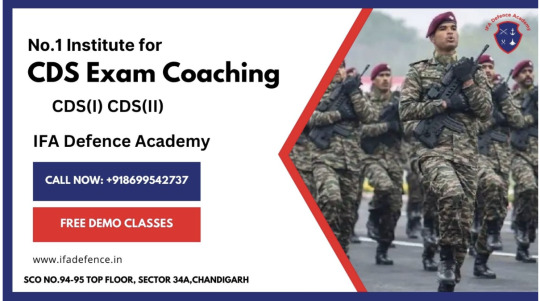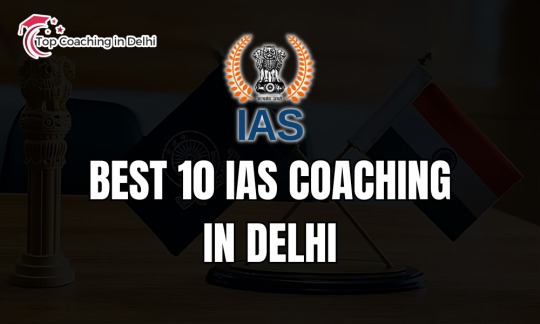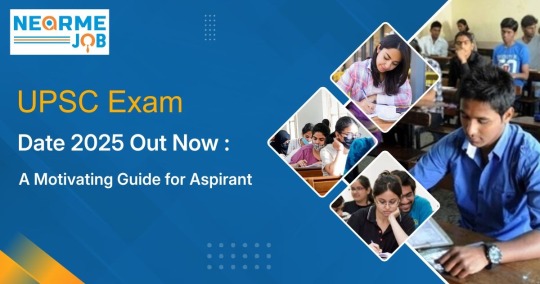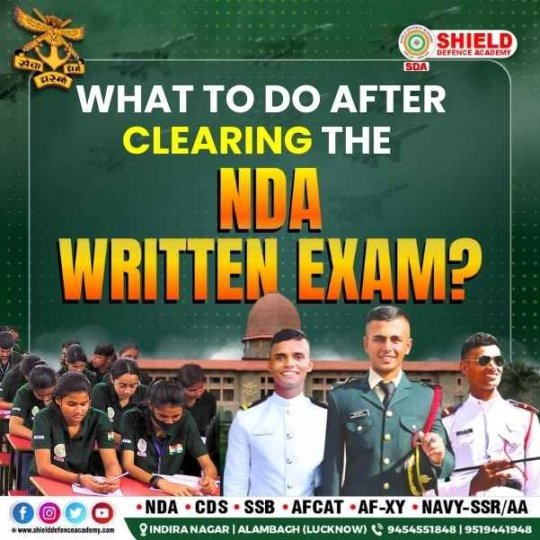#common mistakes in upsc preparation
Explore tagged Tumblr posts
Text
Negative Habits to Avoid for UPSC Preparation
Imagine preparing for the UPSC exam is like setting off on a thrilling adventure. But just like any adventure, there are challenges to overcome. It takes a lot of hard work, sticking to your goals, and having a good plan. But, sometimes, even if you're really trying your best, you might find yourself doing things that could make it harder for you to succeed. In this guide, we'll explore common negative habits faced by UPSC aspirants and provide straightforward solutions to overcome them. By implementing these simple strategies, aspirants can navigate through challenges effectively and achieve success in their UPSC journey.
Procrastination - Putting Off Tasks

Procrastination is when we delay tasks or waste time on unimportant things. Many UPSC aspirants struggle with procrastination, which can lead to missed study sessions and last-minute pressure.
To overcome procrastination, break your study tasks into smaller, manageable parts. To create a sense of urgency, establish particular deadlines for every task. By taking small steps consistently, you can avoid procrastination and stay on track with your study schedule.
“You may delay, but time will not.”
― Benjamin Franklin
There are always distractions, if you allow them! Successful people remain optimistic and concentrated on their goals regardless of their surroundings. They stay focused. They avoid getting distracted, which is common in today's digital world. Social media, notifications, and other distractions can easily divert our attention away from studying.
To avoid distractions, create a dedicated study space that is free from potential distractions. Turn off notifications on your phone and use productivity tools to block distracting websites. Set specific times for studying and avoid multitasking. By minimizing distractions, you can improve focus and productivity during your study sessions.
Distractions - Losing Focus

“Work is hard. Distractions are plentiful. And time is short.”
― Adam Hochschild
Lack of Consistency

Consistency is really important for doing well in UPSC preparation. It’s key to success. However, many aspirants struggle to maintain a consistent study routine.
To overcome this, establish a daily study schedule and stick to it religiously. Make sure you stick to your study schedule and give it more importance than other things. Set realistic goals for each study session and keep checking how well you're doing. By making studying a habit and sticking to a consistent routine, you can maximize your productivity and progress in your UPSC preparation.
“Success isn't always about greatness. It's about consistency.
Consistent hard work leads to success. Greatness will come.”
― Dwayne Johnson
Neglecting Health and Adequate Sleep

UPSC preparation can be mentally and physically demanding, and many aspirants neglect their health in pursuit of their goals. However, neglecting your health can have negative consequences on your ability to study effectively. Sleep is essential for cognitive function, memory retention, and overall well-being. However, many aspirants neglect their sleep in favor of studying late into the night. This can lead to sleep deprivation, which can impair your ability to focus, concentrate, and retain information.
To prioritize your health, make sure to get an adequate amount of sleep each night. Aim for at least 7-8 hours of sleep to ensure that your mind and body are well-rested. In addition, make time for regular exercise and physical activity to reduce stress and improve overall well-being. Finally, don't forget to eat a balanced diet and stay hydrated to fuel your body and brain for studying.
Relying on One Study Method

Every aspirant has their own preferred study method, whether it's reading, taking notes, or practicing past papers. However, relying solely on one study method can limit your learning and comprehension.
To overcome this, try diversifying your study methods to engage different parts of your brain. For example, if you're used to reading, try incorporating more visual aids or discussing concepts with peers. Try out various methods of studying until you discover which one suits you the most. By diversifying your study methods, you can improve your understanding and retention of the material.
Negative self-talk can be dangerous to your confidence and motivation. Many aspirants struggle with self-doubt and fear of failure, which can hold them back from reaching their full potential.
To overcome negative self-talk, practice self-compassion and positive affirmations. Instead of focusing on your shortcomings, celebrate your achievements and strengths. Be around friends and family who support you and have faith in your skills. By cultivating a positive mindset and practicing self-love, you can overcome self-doubt and achieve success in your UPSC journey.
Negative Self-Talk - Self-Doubt

"One important key to success is self-confidence.
An important key to self-confidence is preparation."
― Arthur Ashe
Trying to Read Everything

UPSC aspirants are often overwhelmed by the sheer volume of reading material available. Many aspirants feel pressured to read every book and resource on a given topic, leading to stress and burnout.
To overcome this, focus on quality over quantity when it comes to reading. Prioritize essential books and resources that cover the core concepts and topics of the UPSC syllabus. Take notes as you read to help reinforce your understanding and retention of the material. Remember, it's better to thoroughly understand a few key concepts than to skim/go through numerous resources without grasping the core concepts.
Disorganization can hinder your ability to study effectively and efficiently. Many aspirants struggle to keep track of study materials, deadlines, and important dates.
To overcome this, create a study schedule and organize your study materials in a systematic manner. Use folders, binders, or digital tools to keep your study materials organized and easily accessible. Break down your study schedule into smaller, manageable tasks and set deadlines for each task. By staying organized, you can reduce stress and improve productivity in your UPSC preparation.
Lack of Organization

“For every minute spent organizing, an hour is earned.”
― Benjamin Franklin
Misplaced Study Groups

Study groups can be a valuable resource for UPSC aspirants, providing support, motivation, and shared knowledge. However, not all study groups are created equal, and some aspirants may find themselves in study groups that are not conducive to effective studying.
To overcome this, choose study partners wisely and find individuals who are serious and committed to their UPSC goals. Look for study groups or forums where you can engage with like-minded aspirants who share your dedication and enthusiasm for UPSC preparation. By surrounding yourself with supportive and motivated study partners, you can enhance your learning and stay on track with your UPSC goals.
Overcoming negative habits is essential for UPSC aspirants to succeed in their journey. By implementing simple strategies such as breaking tasks into smaller parts, minimizing distractions, maintaining consistency, prioritizing health, diversifying learning methods, fostering a positive mindset, finding a balance between work and study, focusing on quality reading, staying organized, choosing study partners wisely, using the internet judiciously, and prioritizing sleep, aspirants can navigate through challenges effectively and achieve success in their UPSC preparation. Remember, success in the UPSC examination requires dedication, perseverance, and a willingness to overcome obstacles. Keep pushing forward, stay focused on your goals, and believe in yourself—victory is within reach!
#upsc#education#upsc2024#upscpreparation#upscstudymaterial#quotes for upsc aspirants#quotes for students motivation#Misplaced Study Groups in UPSC Preparation#Lack of Organization in UPSC Preparation#Trying to Read Everything in UPSC Preparation#Negative Self-Talk - Self-Doubt#Relying on One Study Method#Neglecting Health and Adequate Sleep in upsc preparation#Lack of Consistency in upsc preparation#Distractions in upsc preparation#procrastination in upsc preparation#Procrastination#upsc syllabus ignorance#upsc exam strategy mistakes#ENSURE IAS coaching tips#upsc self-study bad habits#upsc time management mistakes#ENSURE IAS academy tips#upsc coaching center habits to avoid#upsc study routine mistakes#UPSC#bad habits for upsc exam#common mistakes in upsc preparation#ENSURE IAS preparation tips#negative habits for upsc aspirants
4 notes
·
View notes
Text
Top 5 Mistakes to Avoid During UPSC Preparation
Preparing for the UPSC Civil Services Examination is a challenging yet rewarding journey that requires strategy, discipline, and focus. Aspirants often make some common mistakes during their preparation, which can cost them precious time and effort. Avoiding these pitfalls can significantly improve your chances of clearing the exam. Here’s a list of the top five mistakes to avoid during UPSC preparation:

1. Lack of a Proper Study Plan
One of the biggest mistakes UPSC aspirants make is not having a well-structured study plan. The UPSC syllabus is vast, and without a proper strategy, you may feel overwhelmed. Some students begin studying random topics without understanding the sequence or importance of subjects.
How to Avoid:
Create a clear, subject-wise timetable.
Allocate time for revision and mock tests.
Prioritize topics based on their weightage in the exam.
Stick to your plan and monitor your progress regularly.
2. Ignoring the UPSC Syllabus and Previous Year Papers
Many aspirants start their preparation without thoroughly analyzing the syllabus and previous years’ question papers. This leads to inefficient study, as candidates may waste time on topics that are less important for the exam.
How to Avoid:
Always refer to the UPSC syllabus and have a copy with you.
Go through the past 5-10 years’ question papers to understand the UPSC Exam pattern.
Focus on topics that are repeatedly asked in both Prelims and Mains.
3. Relying on Too Many Study Materials
Another common mistake is relying on multiple sources for each subject. While there are plenty of books and resources available, too many can lead to confusion and information overload. This also affects revision, as revisiting multiple resources is time-consuming.
How to Avoid:
Stick to a few standard reference books and study materials.
Follow reliable sources like NCERTs, and supplement them with current affairs updates.
Revise from your chosen materials regularly to retain information.
4. Neglecting Answer Writing Practice
For Mains, simply acquiring knowledge isn’t enough. Writing answers effectively within the given time is crucial, yet many aspirants neglect practicing this. They may focus solely on reading and memorizing content, which can harm their performance in the actual exam.
How to Avoid:
Start practicing answer writing early, even if you haven’t completed the entire syllabus.
Join a UPSC test series or take time to write answers daily.
Focus on clarity, structure, and providing relevant examples in your answers.
5. Overlooking Mental and Physical Health
The pressure of UPSC preparation can lead some aspirants to neglect their mental and physical well-being. Long study hours without proper breaks, poor sleep, and lack of physical activity can lead to burnout and decreased productivity.
How to Avoid:
Incorporate regular breaks and relaxation into your study routine.
Engage in physical exercise, meditation, or yoga to keep your mind and body fit.
Ensure you get adequate sleep and maintain a healthy diet.
Conclusion:
Avoiding these common mistakes can make a significant difference in your UPSC preparation. A well-planned strategy, focus on revision, and maintaining a balanced lifestyle are key elements to succeeding in one of the toughest exams in the country. Stay consistent, stay focused, and avoid these pitfalls to achieve your IAS dreams.
#UPSC preparation mistakes#common mistakes in UPSC preparation#tips for UPSC success#UPSC study plan#how to clear UPSC exam#answer writing for UPSC#IAS preparation tips.
0 notes
Text
Time Management Tips from IAS Coaching Centers in Bangalore

Preparing for the UPSC Civil Services Examination is no easy feat. With a vast syllabus and fierce competition, every aspirant needs a solid strategy to make the most of their time. Fortunately, IAS coaching centers in Bangalore are known for their expert guidance, not only in academics but also in effective time management techniques. These tips can help you stay on track and maximize your productivity throughout your preparation journey.
Whether you’re attending classes at Bangalore IAS classes or self-studying, these strategies—adapted from the top UPSC coaching institutes in Bangalore—can transform the way you prepare.
1. Prioritize the Syllabus with Micro-Planning
Coaching experts often stress the importance of breaking the massive UPSC syllabus into smaller, manageable chunks. At renowned civil services coaching in Bangalore, aspirants are taught to divide their study plan into daily, weekly, and monthly goals.
For example, start your mornings with a focused review of a topic from polity or history and end your day solving practice questions. A micro-plan ensures you cover all subjects systematically, leaving no room for last-minute cramming.
2. Follow the 3-Hour Rule for Study Sessions
Many IAS academies in Bangalore recommend aspirants divide their day into focused 3-hour sessions with short breaks in between. The goal is to achieve deep concentration during these periods and complete substantial portions of the syllabus without burnout.
Faculty at Bangalore IAS classes often suggest aspirants take a short 10-minute break every hour to stay mentally fresh. This approach ensures you retain information better and avoid fatigue.
3. Make Revision a Daily Habit
One key piece of advice shared at the best IAS coaching in Bangalore is the importance of daily revision. Revisiting previously studied topics helps consolidate your knowledge and builds confidence. A popular strategy among coaching centers is the “50-10-40” method:
Spend 50% of your time studying new topics.
Dedicate 10% to quick revision of the previous day���s work.
Use the remaining 40% to attempt mock tests or write practice answers.
Aspirants who incorporate this method often find themselves better prepared for both the prelims and the mains.
4. Master the Art of Note-Making
In most UPSC coaching centers in Bangalore, faculty emphasize the importance of concise, self-prepared notes. Instead of relying solely on bulky textbooks or coaching materials, learn to distill complex topics into easy-to-revise points.
Top-performing students at IAS academy Bangalore recommend creating separate notebooks for subjects like current affairs, essays, and GS topics. Highlight important points and update them regularly to stay ahead.
5. Leverage Mock Tests and Analysis
One of the standout features of top UPSC coaching institutes in Bangalore is their extensive focus on mock tests. Regularly attempting tests under exam-like conditions helps improve time management, question prioritization, and accuracy.
However, the real trick lies in analyzing your performance. Coaching centers guide aspirants to evaluate their mistakes, learn from them, and refine their strategy. This practice ensures that you’re continually improving and saving precious time on exam day.
6. Balance Classes and Self-Study
A common challenge for aspirants at civil services coaching in Bangalore is balancing classroom learning with self-study. Faculty members recommend reviewing classroom notes the same day, ensuring you retain key concepts.
Additionally, allocate at least 4-5 hours daily for self-study, focusing on strengthening weak areas or exploring additional resources recommended by mentors at your coaching institute.
7. Maintain a Healthy Study-Life Balance
Top coaches at the best IAS coaching in Bangalore stress that time management isn’t just about study hours—it’s about overall productivity. A healthy routine that includes adequate sleep, physical activity, and relaxation is crucial for maintaining mental clarity during preparation.
Taking short walks, meditating, or engaging in a hobby can help refresh your mind and boost your efficiency when you return to your study desk.
8. Use Technology to Stay Organized
With advancements in digital tools, many UPSC coaching centers in Bangalore encourage aspirants to leverage apps for time management. Calendar tools, flashcard apps, and online test portals are invaluable for tracking progress and staying consistent.
For instance, you can use apps to schedule revision sessions, set reminders for coaching classes, or track your daily goals.
Why Time Management Matters for UPSC Success
Effective time management is the backbone of every successful aspirant's journey. The best civil services coaching in Bangalore goes beyond academics to teach students how to optimize their time. These techniques aren’t just limited to study hours—they prepare you to think critically, manage stress, and approach the exam with confidence.
As many toppers from IAS academy Bangalore point out, mastering time management can be the difference between clearing the exam and falling short. Start early, stay consistent, and adapt these expert tips into your daily routine.
2 notes
·
View notes
Text
Why Reading Newspapers Is a Game-Changer for UPSC Aspirants

Cracking the UPSC Civil Services Exam is not just about studying hard — it’s about studying smart. And when it comes to smart preparation, one habit truly sets toppers apart from the crowd: daily newspaper reading.
You might have heard your teachers say, Read the newspaper daily. But why exactly is it so important? Why do experts from Bajirao IAS Academy, the Top coaching institute for UPSC in Delhi, insist that newspaper reading can be the deciding factor between clearing Prelims, Mains, or missing the cut?
Let’s dive into how this simple habit can completely transform your UPSC preparation.
Why Daily Newspapers Matter for UPSC
The UPSC exam pattern — especially the Mains and Interview — focuses heavily on your understanding of current affairs, government policies, international relations, social issues, and your analytical thinking. Textbooks and coaching notes are essential, but they can never fully replace the real-time awareness that a newspaper provides.
Here’s how newspapers act like a secret weapon in your UPSC journey:
Updated Content: UPSC constantly evolves. Questions are framed on recent events.
Multidimensional Approach: One news item can connect to polity, economy, ethics, or environment.
Better Essay Writing: Reading editorials improves vocabulary, structure, and analytical depth.
GS Paper Mastery: Especially GS Paper 2 and GS Paper 3 are directly linked to current events.
Which Newspapers to Read?
There’s no shortage of newspapers out there, but UPSC aspirants should focus on the following:
The Hindu – Best for editorials, national news, and social issues
The Indian Express – Excellent for in-depth analysis, international relations, and science & tech
PIB (Press Information Bureau) – Official source of government policies and updates
Yojana & Kurukshetra (Monthly) – Great for essay and GS topics like agriculture, rural development
Most UPSC toppers agree that quality matters more than quantity. Read 1–2 newspapers well rather than skimming through 4–5.
What to Read in the Newspaper?
A common beginner mistake is trying to read every page. But UPSC demands a selective and smart approach. Here's what to focus on:
Front Page Headlines: National importance or landmark rulings
Editorials & Opinions: Diverse views, critical analysis, writing style
National News: Policies, schemes, parliamentary debates
International Affairs: Diplomacy, global organizations, treaties
Economy: Budget, RBI policies, inflation, employment data
Environment & Science: Wildlife, climate change, new technology
Legal Developments: Supreme Court judgments, amendments
Avoid Bollywood gossip, sports, or local political controversies unless they have national/international implications.
How Newspaper Reading Helps in Each UPSC Stage
Prelims
Factual updates from government schemes
Latest scientific developments
Reports and indices (HDI, CPI, etc.)
Mains
GS 2: Governance, Constitution, polity, social justice
GS 3: Economic development, environment, internal security
Essay: Rich content from editorials, quotes, and current themes
Ethics: Case studies and examples from real life
Interview
Your opinions are judged based on current events
You may be asked, “What’s your opinion on Uniform Civil Code?” or “What do you think about India’s stand on Israel?”
Newspapers help you form informed, balanced, and confident responses.
Tips from UPSC Experts and Toppers
"Reading newspapers builds the aspirant’s thinking process. UPSC doesn’t test memory, it tests maturity."
"Every day, I would dedicate one hour to reading 'The Hindu' and making notes. It helped me immensely in GS and Essay."
Bajirao IAS Academy, the Top coaching institute for UPSC in Delhi, emphasizes that:
"Newspaper reading is like daily exercise for the UPSC mind. It trains you to look at every topic from different angles — legal, ethical, economic, and social."
How to Make Notes from Newspaper
Making notes is crucial. Here’s a simple method followed at Bajirao IAS Academy:
Use a daily planner or digital tool (like Evernote/Notion)
Divide notes under GS Papers: GS 1, 2, 3, 4, Essay
Write short bullet points or Q&A format
Use highlighters or color codes
Revise weekly
Don’t copy the news article — extract the core issue, background, implications, and UPSC relevance.
Common Mistakes to Avoid
Reading newspapers like a school textbook
Skipping editorials
Not making notes
Spending too much time (ideally not more than 1 hour/day)
Ignoring revision of notes
Remember: It’s not about how much you read — it’s about what you absorb and how you apply it.
Small Habit, Big Results
In the world of UPSC, the smallest habits often lead to the biggest results. Newspaper reading may feel slow in the beginning, but over time, it shapes your understanding of the world, improves your language, sharpens your opinions, and builds your civil servant mindset.
With expert guidance from mentors at Bajirao IAS Academy, the Top coaching institute for UPSC in Delhi, thousands of students have transformed their UPSC prep by simply making newspaper reading a daily ritual.
So tomorrow morning, when you pick up your newspaper, don’t just read it — analyze it, feel it, question it.
That’s what future administrators do.
#Top coaching institute for UPSC in Delhi#upsc#upscmentorship#newspaper#news#upsc current affairs#upscindia#upsc2026#upsc2025
0 notes
Text
Preparing for the UPSC Civil Services Examination is a monumental challenge, and choosing the right UPSC coaching in Delhi can be a game-changer. Delhi is a hub for IAS aspirants, but many candidates fall into common traps that hinder their progress. If you're planning to enroll in coaching. Get more information please click here.
0 notes
Text
How to Crack CDS in First Attempt – A Complete Guide by IFA Defence Academy
Cracking the Combined Defence Services (CDS) exam in the very first attempt is a dream for many young aspirants who want to serve the nation with pride and honor. The exam, conducted by the Union Public Service Commission (UPSC) twice a year, is highly competitive and demands a well-planned strategy, consistent effort, and the right guidance.

In this comprehensive blog post, we at IFA Defence Academy — a leading name for CDS coaching in Chandigarh — will walk you through a detailed roadmap to clear the CDS exam in your first attempt. Whether you're still in college or have just graduated, these tips will set you on the right track.
Understanding the CDS Exam Structure
Before diving into preparation strategies, it is crucial to understand the exam pattern:
For IMA, INA, and AFA:
English – 100 Marks
General Knowledge – 100 Marks
Elementary Mathematics – 100 Marks
For OTA (Officers’ Training Academy):
English – 100 Marks
General Knowledge – 100 Marks
All papers are objective type with a negative marking of 1/3rd for every wrong answer. Understanding this structure helps tailor your preparation accordingly.
Step 1: Make a Realistic Study Plan
Planning is the first step to success in any competitive exam.
Divide your syllabus: Break the topics into daily or weekly goals.
Set achievable targets: Don't overburden yourself. Instead, focus on consistency.
Mix subjects daily: Instead of studying one subject per day, study 2–3 subjects to avoid monotony.
At IFA Defence Academy, our faculty helps students create personalized study plans which is one of the reasons we're trusted for CDS coaching in Chandigarh.
Step 2: Strengthen the Basics
A common mistake many aspirants make is jumping directly to mock tests and shortcuts. Start by building strong conceptual clarity, especially in:
English Grammar & Vocabulary
Current Affairs & Static GK
Fundamentals of Arithmetic, Algebra, Trigonometry, and Geometry
Books like NCERTs (Classes 6 to 10 for Maths) and Lucent for GK are great to begin with. For English, Wren & Martin and newspaper editorials can be excellent resources.
Step 3: Practice Previous Year Papers
One of the most effective strategies is to analyze and solve previous year papers:
Understand question patterns and difficulty levels.
Identify frequently asked topics.
Practice time management during exam conditions.
IFA Defence Academy provides a repository of solved previous year papers as part of its comprehensive study package — an added advantage of enrolling in the best CDS coaching in Chandigarh.
Step 4: Take Regular Mock Tests
No preparation is complete without evaluating your progress. Enroll in a well-structured test series that mimics the actual exam.
Attempt at least one full-length test weekly.
Analyze your performance after every test.
Work on weak areas before the next test.
Mock tests improve speed, accuracy, and time management — key elements in clearing the CDS exam on your first try.
Step 5: Focus on Physical Fitness for SSB
Cracking the written exam is only half the battle. The SSB Interview is equally crucial and includes psychological tests, group discussions, physical tasks, and personal interviews.
IFA Defence Academy emphasizes complete training, including SSB interview preparation, group tasks, and personality development, making it a preferred choice for CDS coaching in Chandigarh.
Tips for physical readiness:
Jogging or running daily
Building upper body strength
Practicing group activities and leadership exercises
Step 6: Stay Updated with Current Affairs
The General Knowledge section can be a game-changer. To score well:
Read newspapers like The Hindu or Indian Express daily.
Watch news analysis on channels like Rajya Sabha TV.
Prepare monthly current affairs notes (or follow a reliable monthly magazine).
IFA Defence Academy provides daily and weekly GK capsules tailored specifically for CDS aspirants.
Step 7: Maintain a Positive Mindset
Staying confident and mentally strong is as important as academic preparation.
Avoid burnout — take regular breaks.
Stay motivated by reading biographies of defence personnel.
Surround yourself with like-minded aspirants.
At IFA Defence Academy, we believe that mentorship, peer interaction, and a disciplined environment are key to transforming potential into performance.
Why Choose IFA Defence Academy for CDS Coaching in Chandigarh?
Here’s why hundreds of students trust us every year:
Experienced Faculty: Retired defence officers and UPSC experts.
Updated Study Material: Designed as per the latest exam trends.
Personalized Mentorship: One-on-one guidance for each student.
Regular Doubt Sessions & Tests: To keep progress in check.
SSB Interview Preparation: Integrated into the coaching program.
If you're serious about your CDS journey, joining a reliable institute like IFA Defence Academy for CDS coaching in Chandigarh gives you a strategic edge.
Final Thoughts
Cracking the CDS exam in your first attempt is entirely possible if you have:
A clear strategy
Strong fundamentals
Dedicated practice
Right guidance
IFA Defence Academy is here to support you at every step of this journey. If you’re looking for the most trusted and results-driven CDS coaching in Chandigarh, your search ends with us.
Start early, stay focused, and success will follow.
Ready to start your journey toward a career in the Armed Forces?
Get in touch with IFA Defence Academy today — your first step toward wearing the uniform with pride.
0 notes
Text
Top 7 Mistakes to Avoid While Preparing for NDA 2 2025 Exam
Top 7 Mistakes to Avoid While Preparing for NDA 2 2025 Exam | Shield Defence Academy
The NDA 2 2025 Exam is more than just a test—it’s your ticket to becoming a proud officer in the Indian Armed Forces. Thousands of aspirants dream of clearing it, but only a few make it. Why? Most candidates make basic but costly errors that could’ve been easily avoided. If you’re serious about your goal, then understanding the Top 7 Mistakes to Avoid While Preparing for NDA 2 2025 Exam is your first real step toward success.
Why Candidates Fail Despite Hard Work
You might be putting in hours every day, burning the midnight oil, and skipping weekends—but still not getting the results. Why? Because effort without strategy leads nowhere. Mistakes like ignoring the syllabus or neglecting your physical fitness can undo months of hard work. Don’t let these slip-ups sabotage your dream.

Top 7 Mistakes to Avoid While Preparing for NDA 2 2025 Exam
1. Ignoring the Syllabus and UPSC Pattern
This is the most common blunder. Aspirants randomly start preparing from books or YouTube videos without even glancing at the official UPSC NDA syllabus.
Why it matters: UPSC sticks to a defined pattern. If you know what topics to expect, you can study smarter, not harder.
Fix it: Download the latest NDA syllabus and analyze previous years’ papers to understand which topics are most important.
2. Poor Time Management
Balancing NDA prep along with school, tuition, or college is tough. But what’s worse is not having a daily routine.
Symptoms of poor time management: Cramming at the last minute, skipping subjects, or focusing only on favorites.
Solution: Create a timetable that includes study time, breaks, revision, and mock tests. Stick to it!
3. Not Practicing Mock Tests Regularly
Many students underestimate the power of mock tests. They think revising the syllabus is enough. Wrong!
Why mocks help: They train your brain to handle pressure and time constraints.
Shield Defence Tip: Take at least one full mock test every week. After the test, analyze what went wrong and improve.
4. Overlooking English and General Ability Test (GAT)
GAT makes up 600 out of 900 marks in the written exam. Yet, most students only focus on Maths.
Common mistake: Ignoring English grammar, comprehension, current affairs, and science.
What to do: Read newspapers daily, solve English MCQs, and practice current affairs weekly.
5. Skipping NCERT Books
NCERT books from Class 6 to 12 form the backbone of NDA preparation, especially for Maths, Physics, Chemistry, and Geography.
Why students skip them: They think NCERTs are too basic or outdated.
Reality check: Around 60% of NDA questions are NCERT-based. Don’t make the mistake of skipping them.
6. Avoiding Physical Fitness and Medical Standards
NDA isn’t just about passing the written test. You also need to clear SSB interview and medical fitness.
Blunder: Ignoring fitness until the last moment.
Fix: Start running, do push-ups, sit-ups, and improve your stamina now—not after the written test.
7. Lack of Guidance and Coaching
Self-study is great, but sometimes, you need expert guidance to avoid wasting time and effort.
Why it matters: You need someone to correct your mistakes, track your progress, and provide direction.
Solution: Join reputed coaching like Shield Defence Academy where you get subject-wise coaching, mock tests, physical training, and SSB guidance.
How to Rectify These Mistakes
Here’s how to bounce back stronger:
Make a fresh study plan aligned with the UPSC syllabus.
Dedicate 2 hours to GAT and English every day.
Practice 3–4 mock tests monthly.
Start your day with a physical workout.
Refer to NCERT books for basic understanding.
Take regular feedback from mentors or join structured coaching.
Why Shield Defence Academy Recommends Fixing These Mistakes Early
Shield Defence Academy has trained hundreds of NDA qualifiers, and we’ve seen the same pattern every year—those who avoid these mistakes crack the exam confidently.
What we offer:
NDA Foundation Courses
NDA + Schooling Program
Physical Fitness Sessions
Daily Mock Tests
Personal Mentorship and Doubt Clearing
Avoiding these mistakes with us ensures a much higher chance of success.
Additional Tips for NDA 2 2025 Preparation
Use a planner: Track your goals and achievements daily.
Group Study: Helps with peer learning and motivation.
Stay updated: Watch weekly current affairs videos or read monthly compilations.
Use smart apps: For vocabulary, current affairs, and Maths formulas.
Reward yourself: Celebrate small wins to stay motivated.
Conclusion for Top 7 Mistakes to Avoid While Preparing for NDA 2 2025 Exam
Success in the NDA 2 2025 Exam isn’t just about hard work—it’s about smart preparation. Knowing the Top 7 Mistakes to Avoid While Preparing for NDA 2 2025 Exam will save your precious time and effort. So, now that you know what not to do, are you ready to prep like a future officer?
Let Shield Defence Academy be your partner in this mission. From coaching to mentoring to physical training—we’ve got your six!
FAQs
1. What is the right age to start NDA preparation?
The ideal time to start is after Class 10 if you’re aiming for NDA after 12th. Early preparation gives you an edge.
2. Is coaching necessary to crack NDA 2 2025?
Not mandatory, but coaching offers structured learning, mock tests, and expert guidance—especially helpful if you’re serious about success.
3. How can I manage school and NDA preparation together?
Make a weekly timetable, focus on overlapping subjects (Maths, Science), and use weekends for full-length mock tests.
4. Is English really that important in the NDA exam?
Absolutely! English is part of GAT, which carries the highest weightage. Grammar, comprehension, and vocabulary are key scoring areas.
5. How does Shield Defence Academy help in NDA preparation?
From academics to physical fitness, we provide comprehensive coaching, regular assessments, doubt sessions, and SSB prep all under one roof.
#ndatraining#cdstraining#ssbtraining#ssb interview#afcatcoaching#nda#nda training#bestndacoachinginlucknow#navy#airforcetraining
0 notes
Text
Best 10 IAS Coaching Institutes in Delhi for 2025–2026 [With Fees & Results]

https://topcoachingindelhi.com/upsc/best-ias-coaching-in-delhi/
Are you aspiring to become an IAS officer and serve the nation in 2025? If so, you're preparing for one of the toughest and most prestigious exams in India — the UPSC Civil Services Examination. Every year, lakhs of candidates compete for a limited number of positions, making it essential to prepare not just hard, but smart.
One of the most important factors in your UPSC journey is choosing the right IAS coaching institute. Whether you are a beginner or a repeat aspirant, expert guidance can make a huge difference. The right coaching can help you stay motivated, avoid common mistakes, and follow a structured study plan that covers all important topics. Quality faculty, comprehensive test series, and effective mentoring can significantly boost your chances of success.
Delhi has been the epicenter of UPSC preparation for many years. The city hosts some of the most reputed coaching centers with experienced educators and competitive learning environments. Thousands of IAS aspirants flock here every year to receive training from the best.
In this article, we present the Top 10 IAS Coaching Institutes in Delhi for 2025. These institutes have a strong track record of producing top rankers and offer both online and offline coaching options to fit various learning preferences. We’ll also discuss important factors such as course offerings, fee structures, faculty expertise, infrastructure, and student feedback to help you choose the best coaching institute for your preparation.
What is IAS?
The Indian Administrative Service (IAS) is the premier civil service of India, responsible for key administrative roles in the government. Clearing the UPSC Civil Services Exam is mandatory to enter this elite service.
Who Can Apply for IAS?
Anyone who meets the UPSC eligibility criteria — which includes Indian citizenship, age limits, and educational qualifications — can apply. The exam is open to graduates and those in their final year of graduation.
Ranking of Best IAS Coaching Institutes in Delhi for 2025
1. SRIRAMs IAS Known for its comprehensive study material and experienced faculty, SRIRAMs IAS consistently produces top rankers every year. Their mentorship and personalized attention help aspirants excel in all stages of the exam.
2. DRISHTI IAS Drishti IAS is renowned for its excellent foundation courses and effective current affairs coverage. They offer both Hindi and English medium classes, making them a popular choice among diverse aspirants.
3. VISION IAS Vision IAS provides high-quality test series and in-depth classroom sessions. Their integrated approach focuses on conceptual clarity and exam-oriented preparation.
4. VAJIRAM & RAVI IAS One of the oldest and most respected coaching centers in Delhi, Vajiram & Ravi IAS has a legacy of producing top UPSC officers. Their experienced faculty and detailed course plans are well-loved by students.
5. Rau’s IAS Rau’s IAS stands out for its balanced approach to conceptual learning and answer writing practice. Their interactive classes encourage analytical thinking and comprehensive coverage of the syllabus.
6. Vajirao and Reddy IAS Vajirao and Reddy IAS is popular for its focused mentorship and regular mock tests. Their online classes have gained traction among aspirants who prefer remote learning.
7. NEXT IAS Next IAS offers affordable coaching with experienced teachers and a clear focus on covering the entire UPSC syllabus methodically.
8. INSIGHT DELHI Insight Delhi is known for its timely updates on current affairs and well-structured optional subject coaching. They provide a good mix of theory and practice.
9. ELITE IAS Elite IAS delivers quality education with a strong emphasis on classroom interaction and regular doubt-clearing sessions.
10. DIADEMY IAS Diademy IAS is gaining popularity for its innovative teaching methods and personalized mentoring sessions tailored to individual needs.
Download UPSC Previous Year Question Papers
Many of these institutes provide previous year UPSC question papers to their students, which is an excellent resource to understand the exam pattern and question trends.
FAQs
Q1: Which IAS coaching is best for beginners? A: SRIRAMs IAS and Drishti IAS are highly recommended for beginners due to their structured foundation courses.
Q2: Are online coaching options effective? A: Yes, many top institutes like SRIRAMs IAS and Vajirao and Reddy IAS offer online courses that are highly interactive and effective.
Q3: What is the average fee for IAS coaching in Delhi? A: Fees vary but generally range from ₹50,000 to ₹1,50,000 depending on the institute and course duration.
Conclusion
Choosing the right IAS coaching institute can shape your preparation and increase your chances of success in the UPSC Civil Services Exam. Delhi offers some of the best options, and the institutes listed above have proven their excellence over the years. Assess your learning style, budget, and needs carefully before making a decision, and you’ll be well on your way to cracking IAS 2025.
#IAS coaching Delhi#best IAS coaching 2025#UPSC preparation Delhi#top IAS institutes Delhi#IAS coaching online#civil services coaching#UPSC coaching centers#best UPSC coaching Delhi#IAS preparation tips#Vajiram & Ravi#SRIRAMs IAS#Drishti IAS#Vision IAS
0 notes
Text
How to Read Current Affairs for UPSC

Why Current Affairs Matter in UPSC Preparation
You can’t crack UPSC just by mugging up NCERTs. Current affairs are your gateway to understanding the practical side of governance, economics, and international relations. Every topper talks about it and for good reason.
The Weightage in Prelims, Mains and Interview
In Prelims, around 20-30 questions revolve around current affairs. In Mains, almost every answer benefits from a current example. In the Interview? They grill you on what's happening around you.
Real-Time Application of Static Knowledge
Current affairs aren’t floating in isolation. A news piece about the RBI isn’t just news, it’s a prompt to revise monetary policy. That’s where the game changes.
Understanding the UPSC Current Affairs Syllabus
Unlike optional subjects, UPSC doesn’t give a precise syllabus for current affairs. But here’s the trick, it’s hidden in the GS papers.
What Topics to Focus On
Focus on:
Polity & Governance
Economy
Environment
Science & Tech
International Relations
Social Issues
Government Schemes & Reports
Connecting Current Events to GS Papers
For example, if Parliament passes a new bill, it will be linked directly to GS Paper 2 (Polity and Governance). Train your brain to spot these links.
The Ideal Time to Start Reading Current Affairs
How Early Is Too Early?
If you're more than a year away from Prelims, start slow. Don’t burn out early. But start building the habit.
Smart Planning Over Long-Term Coverage
One year of focused current affairs prep (especially from June of the previous year) is more than enough if done right.
Best Sources for UPSC Current Affairs
Newspapers: The Hindu vs Indian Express
Both are good. The Hindu is more analytical, while the Indian Express is clearer and straightforward. Pick one, not both.
Monthly Magazines: Yojana, Kurukshetra & Others
Yojana and Kurukshetra are goldmines for essay and GS Paper 2 & 3. Vision IAS and Insights provide concise compilations.
Online Platforms: Khan Global Studies, PIB, and More
Khan Global Studies provides daily editorials, weekly compilations, and Prelims booster PDFs. Plus, their integrated approach with GS topics is very UPSC-centric.
How to Read Newspapers for UPSC
What to Read and What to Skip
Read:
Editorials
Government Schemes
SC Judgements
Policy Announcements
Skip:
Political rallies
Celebrity gossip
Pure crime stories
Notes-Making While Reading the Paper
Use a digital app or a notebook. Summarise in bullets. Focus on the ‘why’ and ‘impact’, not the full story.
Daily, Weekly and Monthly Strategy
Structuring Daily Routine
1-1.5 hrs daily for current affairs
Read the newspaper + 20 mins for note-making
Weekly Revisions and Monthly Consolidation
Make Sunday your revision day. Read a monthly magazine at month-end to fill gaps.
Effective Note-Making Techniques
Digital vs Traditional Notes
Digital is easier to organise and search. Apps like Notion or Evernote help with tagging and structuring.
Tools to Make Notes: OneNote, Notion, Evernote
Pick one. Consistency > Tool. Don’t switch often.
How to Link Current Affairs to Static Subjects
Polity, Economy, Geography, and Environment
News about GST? Revisit indirect taxes. Environmental protests? Link to the Environment Protection Act.
Integrated Approach for Main Answer Writing
Add current examples in the body or conclusion. It shows awareness and gives you an edge.
Using Khan Global Studies for UPSC Current Affairs
Key Features of KGS Notes and Analysis
Topic-wise arrangement
Daily editorials simplified
Prelims-focused PDFs
Mains answer writing practice
How to Integrate KGS Resources into Your Study Plan
Read their daily news updates
Consolidate weekly with their PDFs
Practice mains questions they provide
Avoiding Common Mistakes in Current Affairs Prep
Information Overload
Don’t try to read 10 sources. Stick to 2–3 reliable ones and revise regularly.
Ignoring Revision and Analysis
Reading without revision = wasted effort. Apply what you read through mocks and answers.
Role of Revision in Mastering Current Affairs
Repetition as the Key to Retention
Revise weekly and monthly. Use colour-coded highlights. Re-read your notes, not the paper again.
Revision Strategy Before Exams
Make a 3-month compilation. Focus on issues that are repeatedly in news. Revise the Prelims booster from KGS.
Mock Tests and Answer Writing Practice
Applying Current Affairs in Mains
Write 2–3 questions weekly. Use examples from current events to support your points.
Practicing Daily and Weekly Questions
Daily answer writing from KGS or similar platforms can make a massive difference.
How to Stay Consistent with Current Affairs
Building the Habit
Set a fixed time. Pair it with morning tea. Make it a ritual, not a chore.
Keeping Motivation Alive
Join Telegram channels, group discussions or peer groups. Accountability boosts consistency.
Final 3-Month Strategy Before Prelims
Focused Revision and Compilation
Use monthly compilations, KGS Prelims booster, and revise daily notes aggressively.
Prioritising Important Issues
Focus on:
International summits
Govt schemes
Environment reports
Economic policies
Final Words: Mastering Current Affairs Smartly
Reading current affairs for UPSC isn’t about being a news junkie—it’s about being a smart learner. With the right sources, strategy, and consistency, you’ll not only understand the world better but also crack one of India’s toughest exams with confidence.
FAQs
1. How many hours should I spend on current affairs daily? About 1–1.5 hours is enough if you're consistent and focused.
2. Is one year of current affairs enough for UPSC? Yes, one solid year is sufficient if you revise and consolidate properly.
3. Should I make notes from newspapers? Absolutely. Personal notes help during revision and last-minute prep.
4. Can I skip newspapers and rely only on monthly compilations? You can, but it’s not ideal. Newspapers give context and develop analytical skills.
5. Is Khan Global Studies a reliable source for current affairs? Yes, it's known for UPSC-oriented content and structured notes that simplify complex topics.
Originally published at http://kgsupsc.wordpress.com on May 23, 2025.
0 notes
Text
We try to find out what the most frequent errors learners make while looking for an online coaching class to prepare for UPSC examinations. Here are the 5 common mistakes to avoid when choosing UPSC online coaching in 2025. https://www.study24x7.com/article/4363/5-common-mistakes-to-avoid-when-choosing-upsc-online-co
0 notes
Text
How to Prepare for General Studies Paper I: Our Proven Framework
Preparing for the UPSC Civil Services Examination can feel like climbing a mountain—but with the right strategy and support, the summit is entirely within reach. General Studies Paper I forms the bedrock of the Prelims and requires a robust, well-rounded preparation approach. Whether you’re a beginner or revisiting your strategy, this guide will walk you through our proven framework that has helped many aspirants succeed.
At the Best IAS Academy in Coimbatore, we understand that cracking GS Paper I demands clarity, consistency, and smart work.

Understanding General Studies Paper I: What to Expect
General Studies Paper I in the Preliminary Examination covers a wide array of topics, including:
History of India and Indian National Movement
Indian and World Geography
Indian Polity and Governance
Economic and Social Development
Environmental Ecology, Biodiversity, and Climate Change
General Science
Current Events of National and International Importance
Each of these areas requires not only theoretical understanding but also awareness of current affairs and analytical thinking.
At the Best IAS Academy in Coimbatore, our curriculum is tailored to cover all these dimensions effectively.
Step 1: Build a Strong Foundation with NCERTs and Standard Books
Start with NCERT books from Class 6 to 12 for subjects like History, Geography, Polity, and Economics. These are indispensable because:
They explain concepts in simple language
They align closely with UPSC's question patterns
They help build conceptual clarity
Pro Tip: Supplement your NCERT readings with standard books like Indian Polity by Laxmikanth, Indian Economy by Ramesh Singh, and Certificate Physical and Human Geography by G.C. Leong.
Step 2: Embrace an Integrated Current Affairs Approach
Current affairs influence nearly 25–30% of the questions in GS Paper I. Follow these practices:
Read The Hindu or The Indian Express daily
Use monthly current affairs compilations from trusted sources
Link current events to static subjects (e.g., link a new environmental regulation to Ecology topics)
We at the Best IAS Academy in Coimbatore help students build this critical integration through regular discussions, current affairs classes, and weekly quizzes.
Step 3: Master Time Management and Smart Revision Techniques
Managing a vast syllabus demands strategic planning. Here’s how to do it:
Create weekly and monthly study plans
Use digital tools like Trello or Notion to track progress
Revise frequently using mind maps and short notes
Join mock test series to simulate exam conditions
Stat Fact: Aspirants who revise a topic at least 3 times before the Prelims are 40% more likely to clear the exam than those who don’t (Source: UPSC Toppers’ Interviews, 2023).
Step 4: Practice with Previous Year Papers and Mock Tests
Solving past UPSC Prelims papers can:
Help you understand the exam pattern
Familiarize you with recurring question types
Improve your time management skills
Join the test series at the Best IAS Academy in Coimbatore to access expertly curated mock exams that mimic the real UPSC environment.
Step 5: Take a Mentorship-Driven Approach
Having the right mentor can make a big difference. Experienced faculty help by:
Identifying your strengths and weaknesses
Offering customized study plans
Providing emotional and academic support during low points
Common Mistakes to Avoid
Avoid these pitfalls that many aspirants fall into:
Ignoring current affairs or treating them as separate from static topics
Overloading on resources instead of sticking to a few trusted ones
Not practicing enough mock tests
Cramming in the last few weeks without a revision plan
Final Thoughts: Take the First Step Towards UPSC Success
General Studies Paper I is not just about mugging up facts—it's about understanding the interconnectedness of subjects, staying updated, and applying knowledge wisely. Following this proven framework will set a strong foundation for your Prelims success and beyond.
At the Best IAS Academy in Coimbatore, we are committed to guiding you every step of the way with expert faculty, structured classes, and personalized mentoring.
0 notes
Text

Discover the official UPSC exam date for 2025 and get expert strategies to streamline your preparation.
Stay updated with the latest UPSC exam date 2025, detailed schedule, official notification, and expert preparation tips. This blog offers a complete roadmap to help aspirants plan smartly, avoid common mistakes, and stay ahead in the UPSC journey.
0 notes
Text
Inside the IAS Academy in Mumbai That Encourage Collaborations
Preparing for UPSC can often feel like a lonely uphill battle, but it doesn’t have to be. One of the most powerful aspects of studying at Chanakya Mandal Pariwar is the vibrant peer learning environment that turns individual preparation into a collective mission. With its well-structured ias academy in Mumbai, the institute builds a strong support system where aspirants don’t just study together — they grow together.
The moment you walk into one of their upsc coaching centers in Mumbai, you notice the difference. Discussions spill beyond the classroom, ideas bounce freely between batches, and doubts are solved not just by faculty, but often by fellow students. This culture of sharing and support helps reduce the mental pressure that many aspirants silently carry.
In Chanakya’s UPSC Classes near me, every batch is encouraged to collaborate. There are group study sessions, answer writing circles, mock interviews with peer feedback, and even community-led current affairs briefings. These activities aren’t just about academic benefit — they build interpersonal skills, critical thinking, and communication abilities that are essential in the later stages of the exam.
Another unique aspect is the informal mentorship between senior and junior students. Those who’ve cleared prelims or mains in earlier attempts often guide newcomers with practical insights. This flow of experience within the community helps every student avoid common mistakes and stay motivated.
Being part of such a dynamic peer group also keeps you accountable. You’re inspired by others’ dedication, you set higher standards for yourself, and you realize that the path to becoming a civil servant is one you don’t have to walk alone.
0 notes
Text
Resource Overload in UPSC Preparation – Foundation Batch
Feeling overwhelmed by too many UPSC study materials? A common mistake aspirants make is collecting excessive resources, leading to confusion and inefficiency.
🌍 Website: https://zenstudy.in/
📢 Telegram: https://t.me/Zenstudyltd
📸 Instagram: https://www.instagram.com/zenstudyz/
Facebook: https://www.facebook.com/profile.php?id=61555473406607
🎥 YouTube: https://www.youtube.com/@Zenstudyz
🐦 Twitter: https://twitter.com/Zenstudyz
🔗 LinkedIn: https://www.linkedin.com/company/zenstudy
#UPSC#IAS#UPSC2025#UPSC2026#UPSCPreparation#UPSCMotivation#ZenStudy#CivilServices#CompetitiveExams#StudySmart#UPSCExam#StudyTips#UPSCPrelims#UPSCMains#UPSCResources#StudyLessScoreMore#ToppersStrategy#UPSCFoundationBatch#UPSCNotes#CrackUPSC#StudyEfficiently#GovernmentExam#CSEPreparation#LearnWithZenStudy#UPSCIndia#IASCoaching
0 notes
Text

Best Study Plan to Crack NDA Written Exam in 1 Month
#NDA EXAM#NDA TRAINING#NDA PREPARATION #NDA#HOWTOCRACKNDA
Introduction
The NDA (National Defence Academy) exam is one of the most prestigious exams in India, conducted by UPSC to recruit candidates for the Indian Army, Navy, and Air Force. Given the high competition and vast syllabus, aspirants need a well-structured study plan to clear the written exam successfully.
With just one month left, smart preparation is the key to success. Manasa Defence Academy is known for providing the best NDA coaching, helping students prepare effectively with expert guidance. This article will guide you with a detailed one-month study plan to help you crack the NDA written exam on the first attempt.
Understanding the NDA Exam Pattern
Before diving into the study plan, it's crucial to understand the NDA exam pattern.SubjectMarksTime DurationMathematics3002.5 hoursGeneral Ability Test (GAT)6002.5 hoursTotal Marks9005 hours
Key points: ✔ Negative Marking: 1/3rd marks deducted for every wrong answer ✔ GAT Includes: English, General Knowledge, Science, and Current Affairs
Understanding the pattern helps in allocating study time effectively and focusing on high-scoring areas.
One-Month Study Plan to Crack NDA
To crack NDA in one month, divide your preparation into four weeks, each focusing on different aspects.
Week 1: Strengthening Fundamentals
Mathematics: Revise basic formulas, theorems, and concepts from NCERT books.
English: Improve grammar, vocabulary, and comprehension skills.
General Science & Current Affairs: Read NCERT science books and follow daily news.
Week 2: Practicing Problem Solving
Solve topic-wise questions in Mathematics and English.
Take daily mock tests to track progress.
Improve speed and accuracy by solving previous years’ papers.
Week 3: Focused Learning & Test Strategy
Revise important topics and shortcut tricks for Mathematics.
Work on General Knowledge & Science revision.
Attempt full-length mock tests under exam conditions.
Week 4: Final Revisions & Exam-Taking Strategy
Revise key formulas, vocabulary, and GK topics.
Practice quick problem-solving techniques.
Learn time management strategies for the actual exam.
Subject-Wise Preparation Strategy
Mathematics:
Focus on Algebra, Trigonometry, Coordinate Geometry, and Statistics.
Practice shortcut methods for quick calculations.
English:
Strengthen grammar rules, sentence formation, and reading comprehension.
Learn 30+ new words daily to improve vocabulary.
General Science & Current Affairs:
Read NCERT books for Physics, Chemistry, and Biology.
Stay updated with current events and defense-related news.
Importance of Mock Tests and Previous Year Papers
Solving previous year NDA papers helps understand the exam pattern.
Mock tests improve time management and boost confidence.
Analyze mistakes and weak areas to improve performance.
Manasa Defence Academy: The Best NDA Coaching
Manasa Defence Academy provides: ✔ Expert faculty & structured courses ✔ Regular mock tests & doubt-clearing sessions ✔ Updated study material for NDA aspirants
With professional guidance, students can prepare efficiently and boost their chances of selection.
Health & Fitness Tips for NDA Aspirants
Follow a healthy diet with nutritious food.
Stay physically active with daily exercises.
Maintain mental well-being by avoiding stress.
Common Mistakes to Avoid While Preparing
❌ Ignoring weak areas and focusing only on strong subjects ❌ Not practicing time management during tests ❌ Skipping mock tests and previous year papers
Motivation and Mindset for Success
Stay disciplined and follow the study plan strictly.
Believe in yourself and maintain a positive attitude.
Consistency and hard work lead to success.
Last-Minute Preparation Tips
Revise important formulas, dates, and concepts.
Avoid learning new topics at the last moment.
Sleep well and stay confident on exam day.
Conclusion
Cracking the NDA written exam in one month is challenging but achievable with a structured study plan, discipline, and the right guidance. Following the above strategy, practicing mock tests, and enrolling in Manasa Defence Academy can significantly improve your chances of success. Stay motivated, work hard, and give your best effort!
Contact:
Manasa Defence Academy
New Gajuwaka Depot, Visakhapatnam.
Andhra Pradesh-530012.
Call: 7799799221, 7799799229
Gmail: [email protected]
Join Manasa Defence Academy & Achieve Your Defence Career Dreams!
0 notes
Text
What to do after clearing the NDA written exam
What to do after clearing the NDA written exam guidance by Shield Defence Academy
First of all, congratulations on clearing the NDA written exam! That’s no small feat. But don’t think the journey ends here—it’s just the beginning. If you’re wondering what to do after clearing the NDA written exam, this is where the real grind starts, and Shield Defence Academy is here to walk you through it all.
Understanding the NDA Selection Process
Before diving into preparation, let’s take a quick look at the bigger picture. The NDA selection process is divided into three key stages:
Written Examination (You’ve cleared this—well done!)
SSB Interview (The real test of personality and intelligence)
Medical Examination (To ensure you’re fit to serve)
Clearing the written test proves your academic readiness. But now comes the time to show you’re officer material.

Step-by-Step Guide Post NDA Written Exam
Step 1: Check Your NDA Result
Go to the official UPSC website and find the NDA result notification. It’s usually a PDF with roll numbers. Double-check your number, and download or print it for future reference.
Step 2: Prepare Documents for SSB
Here’s what you’ll need:
10th and 12th mark sheets
ID proof (Aadhaar/PAN)
Passport-size photographs
Call letter (you’ll receive it soon)
NCC certificate (if applicable)
These documents will be verified at the SSB center.
Step 3: Register on Indian Army’s Website
After the NDA result is declared, you must register on joinindianarmy.nic.in. This is where you’ll fill in personal and academic details. Keep your documents ready for easy input.
Step 4: Get Your SSB Call Letter
You’ll receive an SSB call letter by email or on the registered portal. It will contain details about:
SSB center (Bhopal, Bangalore, Allahabad, etc.)
Reporting date and time
Instructions to follow
If it delays beyond 30 days post-result, contact the respective SSB center.
Preparing for the SSB Interview – Shield Defence Academy’s Approach
What is the SSB Interview?
SSB stands for Services Selection Board. It’s a 5-day evaluation process including:
Screening Test
Psychological Test
Group Testing Officer (GTO) Tasks
Personal Interview
Conference Day
Why is SSB the Real Test?
Unlike the written exam, SSB looks for your natural qualities—leadership, teamwork, courage, presence of mind. It’s not about rote learning but about how you think, behave, and react under pressure.
Shield Defence Academy’s SSB Preparation Plan
This is where Shield Defence Academy truly shines. Our NDA champions are built here, with guidance from retired SSB assessors and defence officers.
Personalized Mentorship Programs
You’re not just one among many. Our mentors track your progress and guide you with one-on-one sessions focused on improving your weak areas.
Physical Training and Group Activities
At Shield, you practice GTO tasks in real-like environments—obstacle courses, command tasks, group planning exercises. All designed to boost confidence and stamina.
Medical Examination Tips
Once recommended by SSB, a thorough medical test is conducted. Here’s what to expect:
Eye and ear testing
Dental checkup
Blood and urine tests
Chest X-ray
Physical fitness (height, weight, BMI)
Shield Defence Academy also provides pre-medical guidance to prepare you for what’s ahead.
Maintaining Discipline and Focus
One common mistake? Relaxing too early after the written result. Shield Defence Academy ensures you stay on track with regular counseling, time management routines, and motivation sessions. Remember, what to do after clearing the NDA written exam isn’t a mystery—it’s a mission.
Mock Interview Practice
SSB interviews are structured but dynamic. Our mock interviews simulate real scenarios. You’ll face questions on:
Personal life
Academics
Hobbies
Current affairs
And we won’t just grade you—we’ll improve you.
Common Mistakes Candidates Make Post NDA Written Exam
Overconfidence: It’s great to be proud, but don’t get lazy.
Ignoring SSB Prep: Most students think they’ll “figure it out.” Don’t be that person.
Late registration: Don’t wait till the last minute to register on the portal.
Importance of Mental Preparation
SSB isn’t just about how fit or smart you are. It’s about your mindset. At Shield, we help you master stress, develop leadership traits, and build self-awareness.
Life at NDA – What Awaits You
Crack the SSB and medicals, and you’ll be at the National Defence Academy, the cradle of leadership. You’ll train with the best, study, learn discipline, and get ready to serve India with pride.
Final Words of Motivation
You’ve cleared the first wall. Now’s the time to push harder, train smarter, and aim higher. Shield Defence Academy will be with you every step of the way. Remember, what to do after clearing the NDA written exam isn’t a mystery—it’s a mission.
Conclusion for What to do after clearing NDA written exam
what to do after clearing the NDA written exam is only half the battle. Now you must prepare for the SSB interview, medicals, and eventually life at NDA. With the right guidance—like what Shield Defence Academy provides—you can walk into the SSB centre with confidence and come out a future officer of the Indian Armed Forces. Stay committed, stay grounded, and march ahead with purpose.
#ssb interview#bestndacoachinginlucknow#navy#afcatcoaching#nda training#nda#airforcetraining#cdstraining#ssbtraining#ndatraining
0 notes